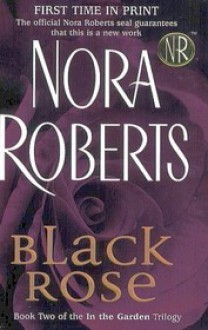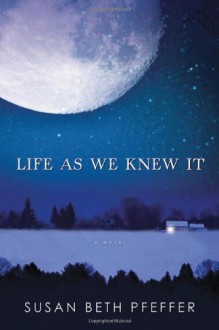
Narrow, suspicious, mean, self-reliant, pig-headed, but generally honourable and as good as their word.’ This quote from ‘The Unprivileged’ by Jeremy Seabrook, describes the working class people of Northampton. They might also, according to his biographer, be used to describe Alan Moore.
The writer Alan Moore has a background I recognise. Born 18th November 1953, he grew up in a working-class neighbourhood, lived in a council house and had a happy childhood. They were poor but they didn’t know they were poor because everyone else was, too. A fish does not notice water. When he went to grammar school, he realised there was such a thing as the middle class. Previously, he had assumed that everyone was like him except the Queen. At junior school, little Alan was top of the class but found himself half-way down in the first year at grammar school and sort of gave up because if he couldn’t win, he wasn’t going to play. He wrote and drew his own comics and sold a few to classmates. He became an autodidact and self-educated himself with pulp fiction, such literature as he fancied and, most importantly, comics. He was a big fan of sixties Marvel. Kicked out of school for drug dealing, he felt a missionary impulse to spread the delights of LSD, he went into a number of dead-end jobs but continued to do creative things at the local Arts Lab, the centres of music, poetry and the hippie counter-culture. David Bowie sponsored one in London. Moore has pretty much remained part of the counter-culture with a dislike of big corporations and a general notion that authority figures are out to get him.
His wife became pregnant, so he decided to get serious with the writing. He went on benefits for two years while submitting work here there and everywhere. When the income from the freelance work exceeded the benefits money, he came off them. That’s the ‘generally honourable’ bit of the character. Right-wingers tend to froth at the mouth about ’dole queue scroungers’ but there is arguably some social merit to not letting budding artists starve while they learn their trade. I believe John Lennon never worked a day in his life at a ‘proper’ job while practicing his tunes. Alan Moore did a few years menial labour, has continued to reside in Northampton and has surely paid a lot of taxes on his large income since that time, more than enough to cover two years at £42.50 per week, the benefit money he and his wife received. Although in interviews he gives the impression of a lazy hippie, his wife has said that he works from eight in the morning until eight at night and doesn’t watch much television.
Moore wrote ‘Marvelman’ and ‘V For Vendetta’ in Dez Skinn’s ‘Warrior’ comic, ‘Captain Britain’ for Marvel UK and ‘The Ballad Of Halo Jones’ for ‘2000AD’, as well as other stuff in music magazines and underground comics. He came to the attention of DC Comics in the USA and took over ‘Swamp Thing’, which he made a great success. Just as the Beatles broke open America for other British bands, so Moore paved the way for other British comic talent. Marvel and DC came looking to see what we had on this sceptred isle and ran away with the top writers and artists. Lance Parkin notes that while the American companies imported British talent, they don’t really comprehend British irony and black humour. The writers of ‘Judge Dredd’ meant it as a dark satire on violent policing and many Americans think that’s the way cops ought to be.
Anyway, Moore went on to write ‘Watchmen’ and the rest is history, a history of trouble between little Alan and big corporations. He fell out with Marvel over the rights to ‘Marvelman’. He fell out with DC because he came not to trust them, not over money. Moore gets 4% royalties on Watchmen and it has sold rather well. He does not love the Hollywood studios. Unusually, he doesn’t swoon with gratitude at the notion of his comics being made into films. He doesn’t regard a comic book as something trivial and a film as something super. He writes comics because he loves the medium and thinks it is the best way to tell stories. He is no doubt ‘grim, unreasonable and annoying’ as he says himself on the cover blurb but, oh my God, don’t he write good.
One of the best things about this very enjoyable book is that in detailing Moore’s life, it also details his works, many long forgotten, so you can seek them out. Moreover, it mentions works that he likes and that have influenced him so you can seek them out, too. I love his greatest hits – ‘Watchmen’, ‘V For Vendetta’, ‘Captain Britain’, ‘The League Of Extraordinary Gentlemen’ – but regret, somewhat, his influence on comics. They became violent and gory for a while and there were far too many rapes. Nicely, he regrets this legacy as well and wishes that everyone would stop copying what he did when he was a young man and go do something else. He did try to get back to fun comics with the 1963 series, a spoof/homage to sixties Marvel. It broke down because of the usual wrangles with publishers. These wrangles are by no means always his fault because the comics business has been a den of unscrupulous practice since its beginnings in 1930s America. Read ‘Men Of Tomorrow: Geeks, Gangsters And The Birth Of The Comic Book’ by Gerard Jones.
As well as the counter-culture ethos, the commercial success, breaking into America and paving the way for others, I think there is one more parallel with John Lennon. I think Moore has a wicked sense of humour. When you get to a certain level of celebrity, especially as an ‘intellectual’, your every statement can be taken very seriously. Lennon said, years after ‘bagism‘, that he and Yoko were cracking up laughing inside those bags. Alan Moore’s madder pronouncements on magic and his snake god Glycon should perhaps be taken with a pinch of salt or maybe those magic mushrooms he ingested when he first met the little glove puppet.
The fellow is sixty now and still at work. He publishes idiosyncratic books like ‘The Lost Girls’ in expensive formats with smaller companies and makes them rich. A huge novel, ‘Jerusalem’, is forthcoming one day and he says it is practically unreadable and the last bit probably won’t make much sense to anyone but him. It’s about Northampton. I expect it will be a best-seller. May he live long and prosper and may many thousands of fans buy Lance Parkin’s excellent biography and find out more about what makes Moore tick.
Eamonn Murphy
This review first appeared at https://www.sfcrowsnest.info/


 Log in with Facebook
Log in with Facebook 











